
SCARS Institute’s Encyclopedia of Scams™ Published Continuously for 25 Years

Victim Recovery: Journaling And Recovery From Scams
The Key For Every Survivor Is Balance And Recovery Should Begin With Journaling
We are at the end of another year with 2019 around the corner.
What better time than now to consider the value of keeping a journal and tracking your daily life balance from emotional, mental, spiritual, and physical levels?
There are various types of journaling that you can do and are based on your personal preference.
Journaling may include a “drawing journal” for those who prefer not to write, and a picture is worth a thousand words. After all, storytelling predates writing, with the earliest forms of storytelling being oral or combined with gestures and expressions or drawings. Cave drawings told stories of hunting and survival. In psychology, storytelling is an integral part of making sense of our lives.
Journaling, or keeping a regular record of experiences and feelings, especially as they relate to your recovery, can be a helpful tool to advance your healing process. For example, a journal can be used to record your recovery-related struggles and accomplishments or to identify – and work through – difficult emotions. It also helps to hold yourself accountable for your decisions and actions and helps you invest in your own self-discovery.
Journaling allows you to also look back in time and see how far you have come!
What Is Journaling?
Journaling is a type of expressive writing, where your goal is not to produce a “book” but instead to simply use the process of putting your thoughts and feelings down.
You can do this – Journaling is not hard:
- On paper – buy a cheap notebook and fill it with your thoughts and feelings or SCARS offers our own printed Journal design for Scam Survivors.
- On your phone or computer or internet – we suggest “Journey” from 2 App Studio – it is free »
- In a confidential SCARS-approved support group on Facebook – to apply to join one of our groups go to support.AgainstScams.org
- Or as a comment on this webpage – though displaying public details of your life is not recommended
This is to help you understand and cope with these thoughts and emotions.
Types Of Journaling
There are many different types of journaling and several of these lend themselves well to working through emotions involved in the scam recovery process. Journaling in recovery might take the form of:
- A Diary – where you write down the events of the day and how you felt about them
- An Evening Reflection Journal – where you reflect on the day’s events and ponder ways that you may have thought or behaved differently that would have involved better choices
- A Gratitude Journal – where you write about things that you are grateful for and appreciative of
- A Goal-Focused Journal – where you keep track of your goals and objectives and your progress toward these
- A Spiritual Journal – your spiritual growth
- A Health Journal – recording daily exercise, stretches, nutrition, etc.
- A Relationship Journal – that has a focus on relational issues – family and friends
Examples of Journaling:
Below are ways that a person might journal about the same situation in different ways, using the four different types of journaling mentioned above.
Example: Diary
Today was a bad day. I got upset right off the bat first thing in the morning when I could not find my keys. I yelled at my wife and accused her of moving them. Then I found them in my coat pocket. But I did not tell my wife or apologize. I just left the house. I felt lousy for the rest of the day–guilty that I had accused her and yelled at her, and disappointed and angry at myself for not apologizing till much later in the day.
Example: Evening Reflection Journal
Event: Yelled at wife this morning & accused her of moving my keys (but they were in my pocket); left house without apologizing.
Reflection on Event: I could have asked wife instead of accusing; I could have stopped to recollect when I had last used keys and what I might have done with them…Would likely have found keys sooner and avoided a negative experience for us both. Will try to stop and think before immediately making accusations next time.
Example: Gratitude Journal
- I am grateful for a loving wife who puts up with my quick temper and impulsive behavior.
- I am grateful that I found my keys in time to get to work without being late.
- I am grateful that my wife is willing to accept my apology, even when it comes too late.
- I am grateful that I have this opportunity to reflect on my actions and consider better options before I drive my loving wife away from me.
Example: Goal-Focused Journal
I will improve my ability to hold my temper and not deflect my frustrations toward others, especially my wife. I will do this by using the following steps:
- I will take 3 deep breaths when I feel myself becoming frustrated or angry.
- I will use the time to think about what I am about to say and how to say it.
- I will consciously choose to ask questions and explore options before jumping to a conclusion or saying what immediately pops into my mind when I am upset.
Benefits Of Keeping A Recovery Journal
Studies have shown that journaling encourages the writer to disclose emotions with less fear of criticism. It also makes it easier to gain the benefit of support groups in that you can read or copy from your journal, instead of trying to express yourself on the spot.
Journaling has been associated with reduced depression and grief reactions, as well as improved health outcomes including reduced stress, improved immune function, and reduced digestive issue symptoms. It is theorized that actively repressing difficult thoughts and feelings requires effort and acknowledging and writing about these feelings reduces overall stress in the body. Translating an event into words helps one understand it and make meaning of it, which contributes to additional positive outcomes. A study published in 2001 in the Journal of Experimental Psychology found that expressive diary writing enhanced cognitive integration (the re-visiting and “updating” of ideas) and increased the capacity for working memory.
Other benefits of journaling include:
- Helping you prioritize problems, goals, and responsibilities
- Tracking your symptoms, setbacks, and successes on a regular basis
- Helping you better recognize, understand and deal with triggers
- Helping you identify negative or self-defeating thoughts and self-talk so that you can challenge and reintegrate these internal messages using a more positive viewpoint
How To Keep A Recovery Journal
There is no wrong or right way to journal. Write in whatever way that feels right for you to express yourself and learn from the review of your reflections. Your journaling can be “structured” (for instance writing in a Reflective or Gratitude Journal every evening) or more loose and flexible, such as jotting down notes in a diary-type journal to capture important thoughts as they come to mind or writing about your awareness of intense feelings.
Here are some suggestions for writing in your journal:
- Pick a private place to write that is free from distractions
- Set aside 20-30 minutes to write about feelings and experiences that you feel had an important impact
- Try to write every day if possible, as consistency will help you organize your thoughts. If you can’t write daily then at least try to write on a regular schedule
- Throughout the day, keep pen and paper handy to jot down snippets of thoughts and feelings that you can later elaborate on in your journal
- Set aside time periodically (every few days or once a week) to review your journal entries and reflect on them
- Share some of your entries with your Scam Victims’ Support Groups or Counselor / Therapist
Journaling is a self-reflective activity, and it can be aided by the use of other activities that also foster an inner, reflective state. Meditating, walking in nature, listening to music, and taking a nap or resting are other ways that you can increase the ability of your deeper thoughts and feelings to emerge.
The use of journaling can be an important tool in your scam recovery toolbox. It can help you recognize when and under what conditions you might be most at risk for a slip-up; and it can help you identify situations and attitudes that empower you and assist you in remaining strong in your commitment to sobriety.
How Journaling Helps Balance & Recovery
We achieve the acknowledgment of our identity and self-concept when writing as we search for our authentic selves.
The Autobiographical Style Of Journaling
Most people feel it is good to begin at the beginning by writing an autobiographical narrative to reflect on all the life experiences which have had an impact on your life both joyful and challenging events. Everyone has a story to tell, and when we take time to write it down, we can begin to understand some of the triggers and patterns that resulted in our scam experience or relapse during recovery. These triggers and patterns of behavior are many times responsible for temptation building to go back to unsafe behavior online as a way of coping. As you write your autobiographical narrative, you will see how your memories and life events make up how you perceive yourself and the world around you. The narrative process of journaling as in the “telling of your story” is cathartic (healing).
However, if you can’t write the autobiographical style, just write what you feel. There is no right or wrong way to do this. The more you do it be better the effect and the easier it will become.
When writing your autobiographical narrative, you should go back as far as you feel necessary to capture a true reflection of your experience.
This can be:
- What put you in the position to be vulnerable
- How you met the scammer – you can include both the facts and what you should have know better
- How it all begins and escalated – this is a place where you can express your frustration with yourself, but also express how you simply did not know any better
- How you began to suspect
- How you ended it
- The panic you felt when you know what it was – your anger and other emotions
- And then your path to recovery
This is a process of what you perceive as important to you and others in your life. With the use of the autobiographical narrative, you have an opportunity to review your life history regarding the scam from all angles.
If you are seeing a mental health professional, therapist or life coach, they can help you formulate all of this. But remember, this is YOUR story, not theirs.
When Writing Your Journal
When writing your journal, there are different aspects of your life that are important to write about – called “Domains.”
By making an effort to touch on these different domains you can be more complete in addressing your life and feelings. This helps you stay better balanced and lets you explore more of what happened and is happening to you.
Domains
- PHYSICAL DOMAIN: The physical domain refers to the physical body and everything that is defined by a presenting physical problem or barrier to your life. Are you dealing with a physical illness or withdrawals which is impacting the way you see your day-to-day life and functionality?
- MENTAL DOMAIN: The mental domain refers to the psychological factors that pertain to the way you process your thoughts and images (many times a traumatic life event – your romance scam – is reported like a silent movie is repeatedly played in the mind). Is there a history of trauma that has caused continued fragmented mental processing, which has impacted your ability to cope with the average day-to-day stressors and functionality?
- EMOTIONAL DOMAIN: The emotional domain is the emotional pain or elation that results from each person’s personal life story, family history, and environmental/cultural factors. Has the impact of the scam caused the ongoing fight-or-flight and frozen responses? Are you suffering from ongoing anxiety and depression?
- SPIRITUAL DOMAIN: The spiritual domain is explored in the patient’s verbal expression of being grateful for life. Or you may not believe in God or higher universal being because you are angry for all the things that happened in your life that you felt were unfair. Or you just don’t understand how a loving being would let you become the victim of a scammer (or scammers). The spiritual domain in many cases is connected to religion or at times a belief in the philosophy of a higher universal being. Many individuals’ narratives reflect themes from the spiritual domain which are a strong connecting point to perceive a personal sense of purpose in life, meaningfulness, and many times demonstrate ongoing faith and resolution.
Triggers
Once you have a well-established journal a list of your personally identified themes begins to make themselves obvious.
These can be identified as your Triggers. The things that set you off into unhealthy emotions or behaviors. You will be able to write a list of them – a list of triggers to be aware of.
These triggers and patterns are part of the subconscious material stored and wired in our brains which in the past have caused you to engage in unsafe behaviors as a mechanism of false rewards. In other words, habits will convince you that it is okay to talk to strangers that are potentially dangerous because you always feel better after.
Self-awareness is always the key to “heading off behavior problems at the pass.” Journaling helps to speed up recovery because it increases self-knowledge and helps you to get in touch with your emotions, thoughts, and feelings. Journaling daily will help to uncover any underlying issues. Also, writing down plans for the future involves rewiring your subconscious reminding us of your progress to overcome challenges so that our dreams become a reality.
Journaling also helps us to get in touch with our intuition which “draws the curtains” of our mind to see the connection to our heart and soul. The “desires of our heart” keep hope alive and reveal those “a-ha” moments that were once hidden behind the deception of the scam.
Recovery is about keeping a balance in life as we are in touch with our emotions, thoughts, and feelings.
-/ 30 /-
What do you think about this?
Please share your thoughts in a comment below!
Table of Contents
- Helping Scam Victims Become Survivors
- Victim Recovery: Journaling And Recovery From Scams
- The Key For Every Survivor Is Balance And Recovery Should Begin With Journaling
- What Is Journaling?
- Types Of Journaling
- Benefits Of Keeping A Recovery Journal
- How To Keep A Recovery Journal
- How Journaling Helps Balance & Recovery
- When Writing Your Journal
- Triggers
LEAVE A COMMENT?
Recent Comments
On Other Articles
- Arwyn Lautenschlager on Love Bombing And How Romance Scam Victims Are Forced To Feel: “I was love bombed to the point that I would do just about anything for the scammer(s). I was told…” Feb 11, 14:24
- on Dani Daniels (Kira Lee Orsag): Another Scammer’s Favorite: “You provide a valuable service! I wish more people knew about it!” Feb 10, 15:05
- on Danielle Delaunay/Danielle Genevieve – Stolen Identity/Stolen Photos – Impersonation Victim UPDATED 2024: “We highly recommend that you simply turn away form the scam and scammers, and focus on the development of a…” Feb 4, 19:47
- on The Art Of Deception: The Fundamental Principals Of Successful Deceptions – 2024: “I experienced many of the deceptive tactics that romance scammers use. I was told various stories of hardship and why…” Feb 4, 15:27
- on Danielle Delaunay/Danielle Genevieve – Stolen Identity/Stolen Photos – Impersonation Victim UPDATED 2024: “Yes, I’m in that exact situation also. “Danielle” has seriously scammed me for 3 years now. “She” (he) doesn’t know…” Feb 4, 14:58
- on An Essay on Justice and Money Recovery – 2026: “you are so right I accidentally clicked on online justice I signed an agreement for 12k upfront but cd only…” Feb 3, 08:16
- on The SCARS Institute Top 50 Celebrity Impersonation Scams – 2025: “Quora has had visits from scammers pretending to be Keanu Reeves and Paul McCartney in 2025 and 2026.” Jan 27, 17:45
- on Scam Victims Should Limit Their Exposure To Scam News & Scammer Photos: “I used to look at scammers photos all the time; however, I don’t feel the need to do it anymore.…” Jan 26, 23:19
- on After A Scam, No One Can Tell You How You Will React: “This article was very informative, my scams happened 5 years ago; however, l do remember several of those emotions and/or…” Jan 23, 17:17
- on Situational Awareness and How Trauma Makes Scam Victims Less Safe – 2024: “I need to be more observant and I am practicing situational awareness. I’m saving this article to remind me of…” Jan 21, 22:55
ARTICLE META
Important Information for New Scam Victims
- Please visit www.ScamVictimsSupport.org – a SCARS Website for New Scam Victims & Sextortion Victims
- Enroll in FREE SCARS Scam Survivor’s School now at www.SCARSeducation.org
- Please visit www.ScamPsychology.org – to more fully understand the psychological concepts involved in scams and scam victim recovery
If you are looking for local trauma counselors please visit counseling.AgainstScams.org or join SCARS for our counseling/therapy benefit: membership.AgainstScams.org
If you need to speak with someone now, you can dial 988 or find phone numbers for crisis hotlines all around the world here: www.opencounseling.com/suicide-hotlines
A Note About Labeling!
We often use the term ‘scam victim’ in our articles, but this is a convenience to help those searching for information in search engines like Google. It is just a convenience and has no deeper meaning. If you have come through such an experience, YOU are a Survivor! It was not your fault. You are not alone! Axios!
A Question of Trust
At the SCARS Institute, we invite you to do your own research on the topics we speak about and publish, Our team investigates the subject being discussed, especially when it comes to understanding the scam victims-survivors experience. You can do Google searches but in many cases, you will have to wade through scientific papers and studies. However, remember that biases and perspectives matter and influence the outcome. Regardless, we encourage you to explore these topics as thoroughly as you can for your own awareness.
Statement About Victim Blaming
SCARS Institute articles examine different aspects of the scam victim experience, as well as those who may have been secondary victims. This work focuses on understanding victimization through the science of victimology, including common psychological and behavioral responses. The purpose is to help victims and survivors understand why these crimes occurred, reduce shame and self-blame, strengthen recovery programs and victim opportunities, and lower the risk of future victimization.
At times, these discussions may sound uncomfortable, overwhelming, or may be mistaken for blame. They are not. Scam victims are never blamed. Our goal is to explain the mechanisms of deception and the human responses that scammers exploit, and the processes that occur after the scam ends, so victims can better understand what happened to them and why it felt convincing at the time, and what the path looks like going forward.
Articles that address the psychology, neurology, physiology, and other characteristics of scams and the victim experience recognize that all people share cognitive and emotional traits that can be manipulated under the right conditions. These characteristics are not flaws. They are normal human functions that criminals deliberately exploit. Victims typically have little awareness of these mechanisms while a scam is unfolding and a very limited ability to control them. Awareness often comes only after the harm has occurred.
By explaining these processes, these articles help victims make sense of their experiences, understand common post-scam reactions, and identify ways to protect themselves moving forward. This knowledge supports recovery by replacing confusion and self-blame with clarity, context, and self-compassion.
Additional educational material on these topics is available at ScamPsychology.org – ScamsNOW.com and other SCARS Institute websites.
Psychology Disclaimer:
All articles about psychology and the human brain on this website are for information & education only
The information provided in this article is intended for educational and self-help purposes only and should not be construed as a substitute for professional therapy or counseling.
While any self-help techniques outlined herein may be beneficial for scam victims seeking to recover from their experience and move towards recovery, it is important to consult with a qualified mental health professional before initiating any course of action. Each individual’s experience and needs are unique, and what works for one person may not be suitable for another.
Additionally, any approach may not be appropriate for individuals with certain pre-existing mental health conditions or trauma histories. It is advisable to seek guidance from a licensed therapist or counselor who can provide personalized support, guidance, and treatment tailored to your specific needs.
If you are experiencing significant distress or emotional difficulties related to a scam or other traumatic event, please consult your doctor or mental health provider for appropriate care and support.
Also read our SCARS Institute Statement about Professional Care for Scam Victims – click here to go to our ScamsNOW.com website.



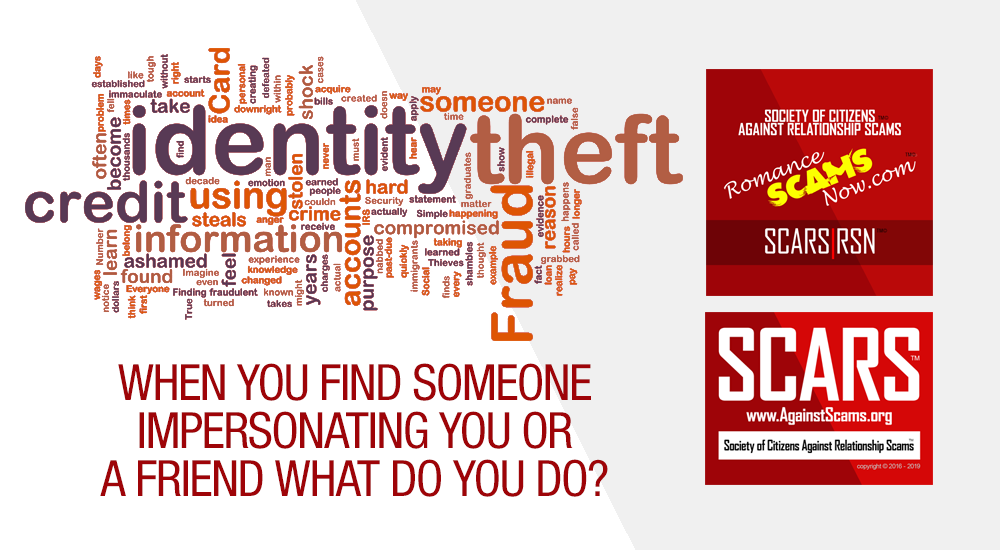
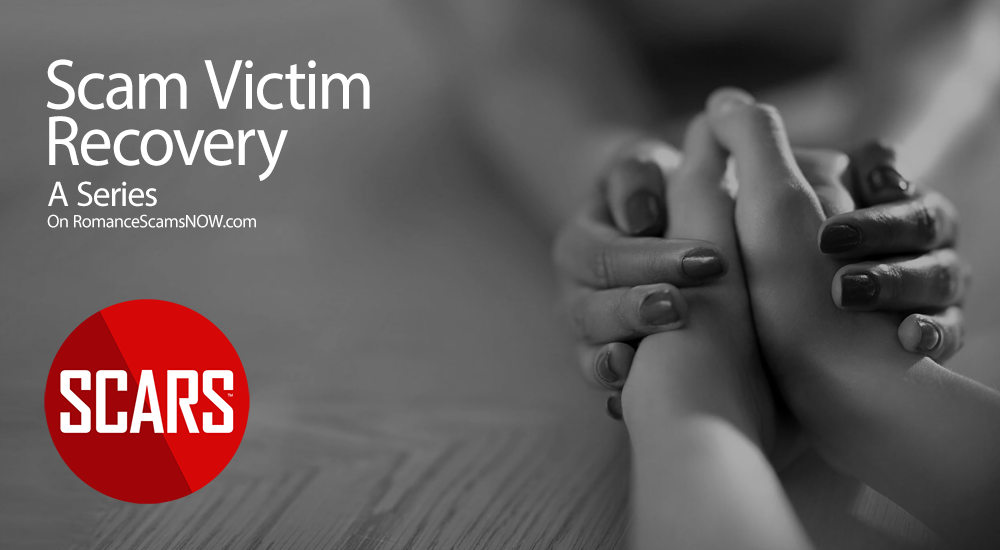

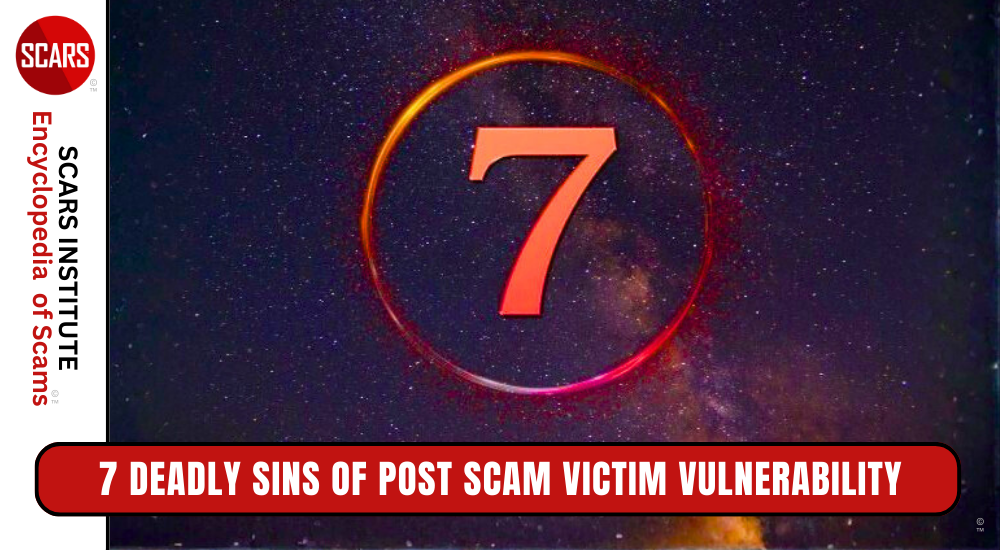
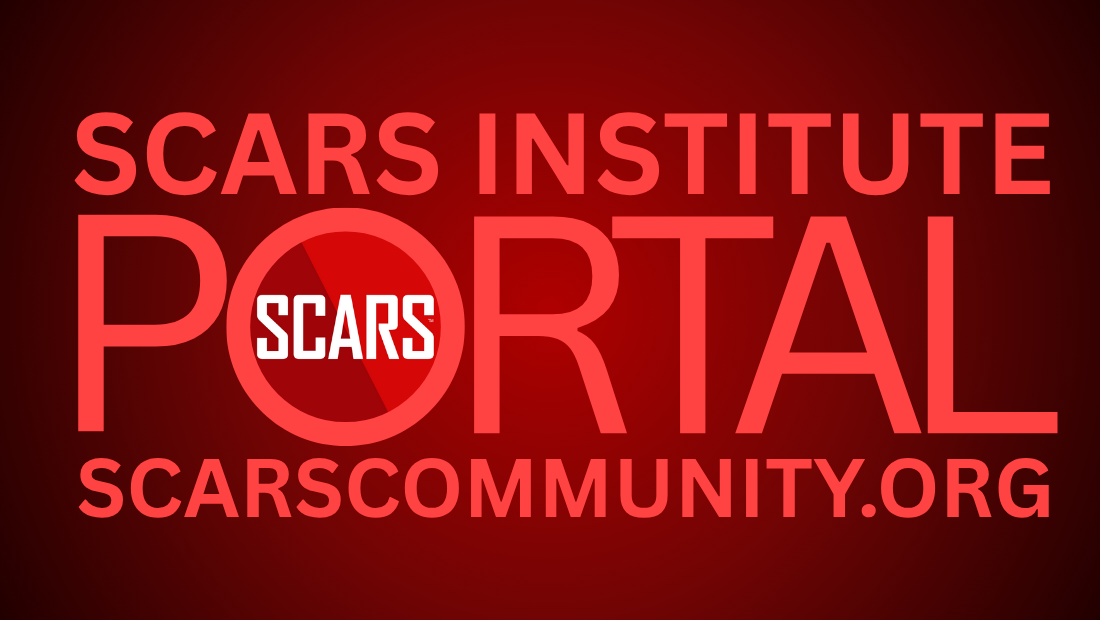
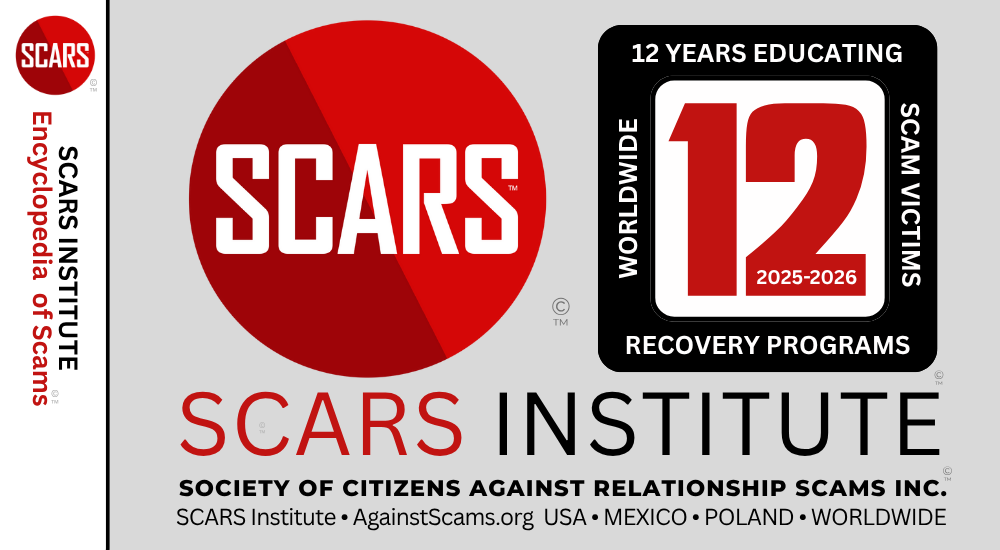







Thank you for your comment. You may receive an email to follow up. We never share your data with marketers.